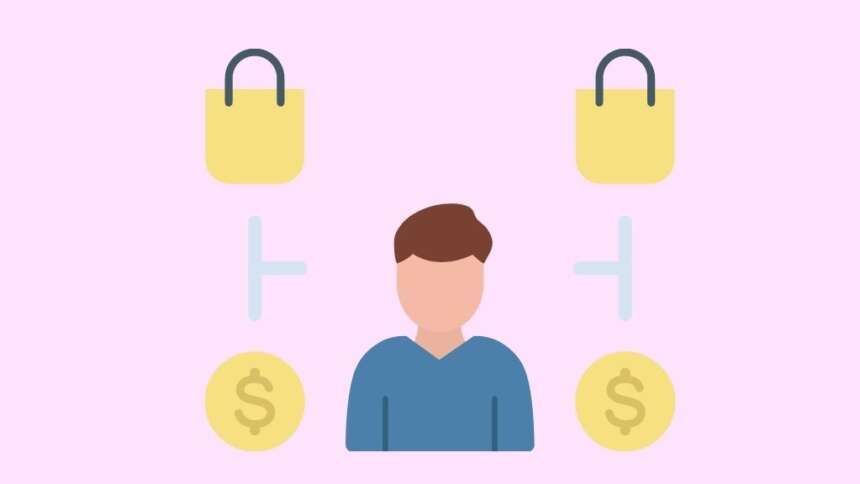The recession that began in 2022 had a huge impact on consumer behavior, as people of all income levels cut back on their spending to cope with the financial crisis.
Consumer spending actually declined by more than 15% during the year, and over the course of three years, more than half of all Americans lost their jobs due to mass layoffs from the country’s largest companies.
How the recession impacted consumption?
Consumers spent less when the recession hit, but those that experienced it firsthand had a slightly different outlook. It was hard to buy new clothes or go out to dinner because with less disposable income it became too expensive.
Getting a new car is another thing that became increasingly difficult during this time because most people were living paycheck to paycheck and couldn’t afford anything extra like that. One of the key impacts was buying habits.
While people still bought what they could afford, it wasn’t as much as before and usually things were bought from bargain stores rather than full priced items from places like Macy’s or Walmart.
Generally speaking, though, purchasing habits changed for most American consumers over this recession and are experiencing economic downslide ̶ making them more careful about their money.
Less Impulse Buying
Consumers in 2022 reacted to the recession in a few different ways.
With consumer confidence low, consumers were hesitant to spend or invest money, which led to decreased sales.
When the US stock market started to bounce back and consumer confidence rose, consumers slowly started to spend more freely again.
In this way, these types of slow-recovering recoveries may become increasingly common in coming years as people are growing more cautious in their spending habits. As with all recessions, some groups were hit harder than others.
However, this time around women seemed to be much better off than men who lost jobs and experienced wage cuts. Women suffered less financially because they traditionally have lower salaries than men and they make up a greater percentage of those who work part-time rather than full-time positions.
What are some major effects on consumer spendings?
Consumers are more conscious about the way they spend their money. There is a greater emphasis on quality over quantity. Consumers make sure that what they buy does not only fit their needs, but also is environmentally sustainable and made with fair trade labor practices. These people are willing to pay extra for products that live up to this standard and make an effort to buy items that meet these qualifications as well as use them in other areas of their life (i.e., choose furniture, appliances, or clothes).
The economy has forced many consumers to be more deliberate in how they spend their money. The end result is typically a better quality product with good ethics standards built into it.
What can other industries do to survive during this time?
It’s not difficult to see why Americans cut back on spending when the recession hit.
So many people lost their jobs or saw their wages decline.
But what most people don’t realize is that these impacts have affected other industries as well. Spending in restaurants and retail stores, for example, declined during this time because fewer people had cash to spend.
And this created problems for small businesses, who relied more heavily on tourist dollars and sales from customers traveling to nearby stores.
But consumers are not solely to blame for this lack of activity–businesses also need to do their part. If a store is going to survive, it needs to offer products at prices consumers can afford. Cutting costs may be an option but if a company wants to stay afloat, it should increase its prices instead.
In essence, this will encourage people with expendable income–those still employed or living off investments–to buy goods rather than save their money for future needs such as retirement. The key then becomes finding the balance between raising prices and providing quality goods at affordable rates so that people can continue supporting local economies while surviving financially themselves.
What is the major impact of recession?
The global recession has caused a wide range of economic impacts that have hit different countries in different ways. In the United States, these impacts resulted in near-collapse and drastic measures were taken to recover from it.
The recession led to a decrease in consumer spending, which caused many companies to downsize or even close for good.
However, consumer behavior also shifted drastically in response to these changes. Specifically, as a result of an increasing focus on savings and affordability during this time period.
Stores began adjusting their budgets accordingly by providing more promotions and discounts that helped drive up customer satisfaction but at a lower price point than before.
Conclusion:
Consumer behavior has always been shown to change depending on the economy . While we may not be at the height of a recession right now, consumer behavior is still impacted by a downward trend in the economy. In 2022, consumer spending will decrease as they continue to have more financial uncertainty in their lives. Spending habits are also changing as people are looking for ways to cut back costs or find more thrifty options that work just as well. Since consumers won’t be spending as much, it’ll put pressure on retailers and manufacturers to provide cheaper goods for consumers to buy which could lead to lower-quality products in general and higher-quality goods costing more money than what many people can afford.

